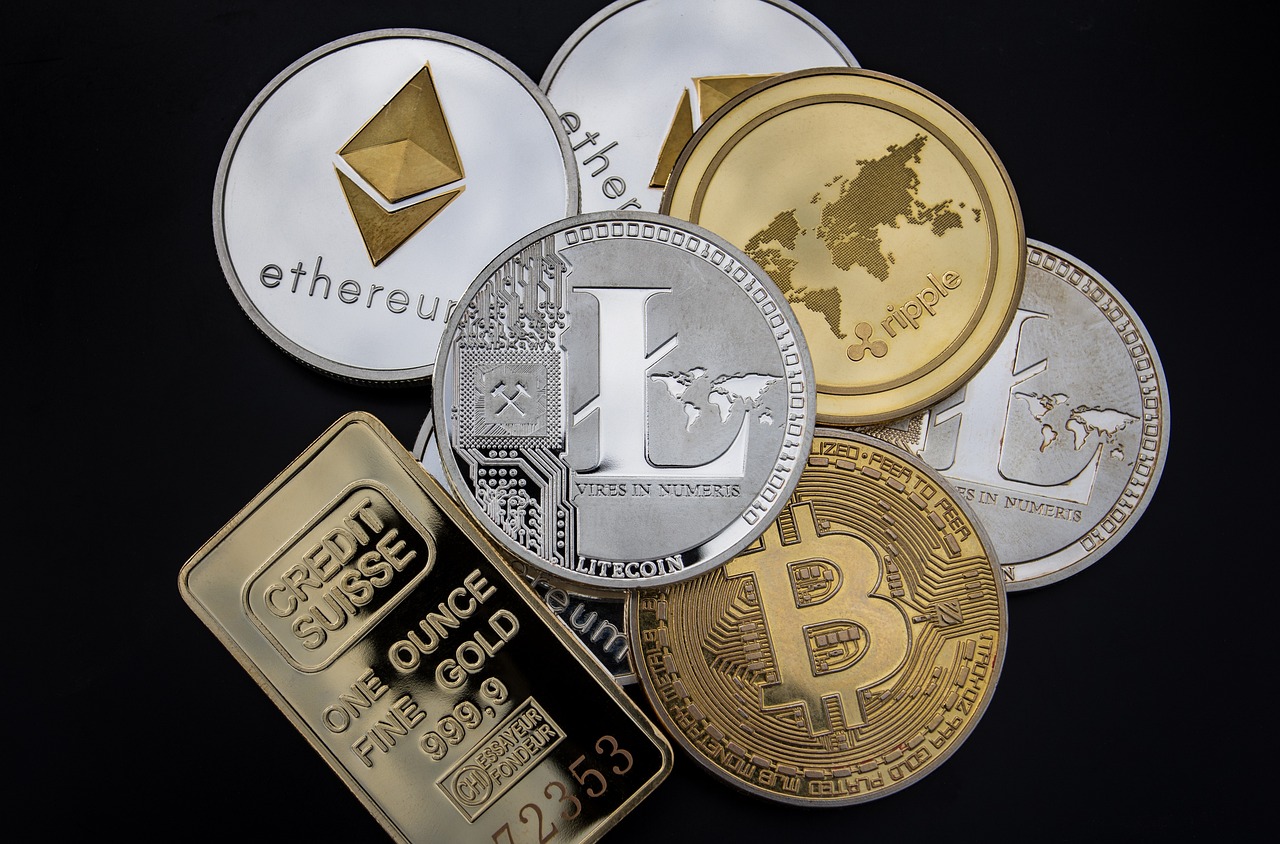Transforming Supply Chain Management with Blockchain
In today's fast-paced world, where every second counts, the need for efficient and transparent supply chain management has never been greater. Enter blockchain technology, a game-changer that is reshaping the way businesses operate. Imagine a world where every transaction is recorded in a secure, immutable ledger, accessible to all stakeholders involved. This isn't just a dream; it's the reality that blockchain brings to supply chain management.
Blockchain technology offers a decentralized approach to record-keeping, eliminating the need for a central authority. This means that every participant in the supply chain—from manufacturers to retailers—has access to a single version of the truth. No more disputes over who said what or when. Instead, everyone can see the same data, which fosters trust and collaboration. It's like having a communal diary that everyone can read but no one can alter without consensus.
But how does this work in practice? Picture a scenario where a product is shipped from a manufacturer to a retailer. With blockchain, each step of the journey is documented in real-time. If a shipment is delayed, everyone in the chain is notified instantly. This level of transparency not only improves efficiency but also enhances accountability. If something goes wrong, you can trace back through the blockchain to find out where the issue occurred, much like retracing your steps when you've misplaced your keys.
Moreover, blockchain's cryptographic security ensures that the data recorded is tamper-proof. This means that once information is entered into the blockchain, it cannot be changed or deleted. This feature is particularly beneficial in combating fraud, as it creates a verifiable history of every transaction. For companies, this translates to reduced risks and increased confidence among consumers who are increasingly demanding transparency in the products they purchase.
As we dive deeper into the benefits of blockchain in supply chains, we will explore how it enhances traceability, reduces costs, and fosters collaboration among stakeholders. Each of these aspects plays a crucial role in transforming supply chain management into a more efficient, reliable, and trustworthy system.
In conclusion, the integration of blockchain technology into supply chain management is not just a trend; it's a necessity for businesses looking to thrive in the modern economy. By enhancing transparency, improving efficiency, and ensuring security, blockchain is paving the way for a future where supply chains are smarter and more resilient.
- What is blockchain technology? Blockchain is a decentralized digital ledger that records transactions across multiple computers securely and transparently.
- How does blockchain improve supply chain management? It enhances transparency, reduces fraud, and increases efficiency by providing real-time tracking and immutable records.
- What are the challenges of implementing blockchain in supply chains? Scalability, interoperability, and regulatory compliance are some of the primary challenges organizations face.
- Can blockchain reduce operational costs? Yes, by streamlining processes and reducing paperwork, blockchain can lead to significant cost savings.

The Basics of Blockchain Technology
Understanding blockchain technology is essential for grasping its impact on supply chains. At its core, blockchain is a decentralized ledger that records transactions across multiple computers. This means that no single entity has control over the entire chain, which enhances security and transparency. Imagine a digital notebook that everyone can see but no one can erase; that’s what a blockchain essentially is. Each transaction is added to a "block," and once filled, the block is linked to the previous one, forming a "chain" of blocks—hence the name blockchain.
One of the most fascinating aspects of blockchain is its use of cryptographic security. Each block contains a unique cryptographic hash of the previous block, along with a timestamp and transaction data. This makes it nearly impossible to alter any information without altering all subsequent blocks, which would require the consensus of the network. Think of it as a series of interconnected safes, where tampering with one would mean you have to break into all the others to keep your secret hidden. This level of security is what makes blockchain an attractive option for supply chain management.
Moreover, the decentralization aspect means that all participants in the supply chain can access the same information in real-time. This leads to a single source of truth that can be trusted by all parties involved. For instance, if a shipment is delayed, everyone in the supply chain can see that information instantly, allowing for quicker decision-making and problem-solving. In traditional systems, information often gets siloed, leading to confusion and inefficiencies. With blockchain, the flow of information becomes much smoother.
To further illustrate how blockchain works, here’s a simplified breakdown of its key components:
| Component | Description |
|---|---|
| Block | A container for storing transaction data. |
| Chain | The sequential linkage of blocks, forming a complete record. |
| Node | A computer that participates in the blockchain network. |
| Consensus Mechanism | The process by which nodes agree on the validity of transactions. |
In summary, the basics of blockchain technology revolve around its decentralized nature, cryptographic security, and real-time transparency. These features not only enhance operational efficiency but also foster trust among stakeholders in the supply chain. As we delve deeper into the advantages of blockchain, it becomes increasingly clear that this technology is not just a trend; it's a transformative force in the realm of supply chain management.

Benefits of Blockchain in Supply Chains
The integration of blockchain technology into supply chain management is nothing short of revolutionary. It brings a host of benefits that traditional systems simply cannot match. One of the most compelling advantages is improved traceability. Imagine a world where every single item in your supply chain can be tracked in real-time. With blockchain, this is not just a dream; it's a reality. Each transaction is recorded on a decentralized ledger, allowing all stakeholders to access the same information simultaneously. This level of transparency fosters trust and accountability, which are essential in today’s fast-paced market.
Another significant benefit of blockchain is its potential to reduce costs. By eliminating the need for intermediaries and reducing paperwork, companies can streamline their operations and save money. For instance, consider the traditional supply chain process that involves multiple parties, each requiring documentation and verification. With blockchain, these steps can be automated, leading to faster transactions and less room for error. This efficiency not only cuts costs but also enhances the overall speed of the supply chain.
Furthermore, blockchain technology promotes enhanced collaboration among stakeholders. In a traditional supply chain, information is often siloed, leading to inefficiencies and miscommunication. However, blockchain creates a shared platform where all parties can view and verify data in real-time. This collaborative environment encourages better decision-making and fosters stronger relationships between suppliers, manufacturers, and retailers. The result? A more resilient supply chain that can adapt to changes quickly.
To illustrate these benefits, let’s take a look at some key areas where blockchain is making a significant impact:
- Traceability: From farm to table, blockchain allows consumers to trace the origins of their products, ensuring quality and safety.
- Cost Efficiency: Companies report savings of up to 30% by reducing manual processes and errors.
- Collaboration: Improved communication leads to faster problem resolution and innovation.
In summary, the benefits of implementing blockchain in supply chains are profound. Not only does it enhance traceability, reduce costs, and improve collaboration, but it also sets the stage for a more transparent and efficient future. As companies continue to explore the possibilities of blockchain, the potential for transformation is limitless. The question is, are you ready to embrace this change and unlock the full potential of your supply chain?
Q: How does blockchain improve traceability in supply chains?
A: Blockchain provides a decentralized and immutable ledger that records every transaction, allowing all stakeholders to track the movement of goods in real-time.
Q: What are the cost benefits of using blockchain?
A: By eliminating intermediaries and reducing paperwork, blockchain can lead to significant operational savings and efficiency improvements.
Q: Can blockchain be integrated with existing supply chain systems?
A: Yes, many blockchain solutions are designed to be compatible with existing systems, allowing for a smoother transition.
Q: What challenges might companies face when implementing blockchain?
A: Companies may encounter scalability issues, regulatory concerns, and the need for industry-wide collaboration to fully realize blockchain's potential.

Enhanced Traceability
One of the standout features of blockchain technology is its ability to provide throughout the supply chain. Imagine being able to track a product's journey from its origin to the consumer's hands, all in real-time. With blockchain, each transaction or movement of goods is recorded on a decentralized ledger, creating a transparent and immutable history of the product. This level of visibility not only boosts accountability but also significantly reduces the risk of fraud and counterfeit goods.
For instance, consider a scenario where a food product is recalled due to contamination. With traditional supply chain systems, tracing the source of the issue can be a painstaking process, often taking days or even weeks. However, with blockchain, stakeholders can quickly access the entire history of the product, pinpointing the exact location and conditions under which it was handled. This rapid response capability is crucial in protecting consumers and maintaining brand integrity.
Furthermore, the transparency provided by blockchain fosters trust among all parties involved in the supply chain. When suppliers, manufacturers, and retailers can see the same data, it encourages collaboration and reduces disputes over product authenticity. In fact, a study by the World Economic Forum highlighted that businesses implementing blockchain for traceability reported a 30% reduction in disputes related to product quality and authenticity.
To illustrate the impact of enhanced traceability, let’s look at a few real-world examples:
| Company | Implementation | Outcome |
|---|---|---|
| Walmart | Blockchain for tracking leafy greens | Reduced traceability time from days to seconds |
| IBM & Maersk | TradeLens platform for shipping | Improved visibility and reduced shipping times |
| Everledger | Tracking diamonds | Enhanced security against fraud and theft |
Despite these benefits, implementing enhanced traceability is not without its challenges. Organizations may face hurdles such as integrating blockchain with existing systems, ensuring data accuracy, and achieving buy-in from all stakeholders. However, the rewards of improved traceability, such as increased consumer trust and streamlined operations, far outweigh these challenges. As the technology continues to evolve, we can expect to see even more innovative solutions that leverage blockchain for traceability in supply chains.
- What is blockchain technology? Blockchain is a decentralized digital ledger that records transactions across multiple computers, ensuring that the data is secure and cannot be altered retroactively.
- How does blockchain enhance traceability? By providing a transparent and immutable record of every transaction, blockchain enables all parties in the supply chain to track the movement and handling of goods in real-time.
- What are the benefits of enhanced traceability? Enhanced traceability improves accountability, reduces fraud, and allows for quicker responses to issues like product recalls.
- What challenges do organizations face when implementing blockchain? Challenges include integrating with existing systems, ensuring data accuracy, and gaining stakeholder buy-in.

Case Studies of Traceability
When it comes to implementing blockchain for traceability in supply chains, real-world examples shine a light on the transformative power of this technology. One notable case is that of Walmart, which has adopted blockchain to enhance the traceability of its food products. By utilizing IBM's Food Trust blockchain, Walmart can track the journey of food items from farm to shelf in mere seconds. This is a game changer, as it not only ensures the freshness of products but also allows for swift responses to food safety issues. Imagine a scenario where a foodborne illness is detected; with traditional systems, tracing the source could take days or even weeks. However, with blockchain, Walmart can pinpoint the exact origin of the contaminated product almost instantly, thus protecting consumers and reducing potential harm.
Another compelling example is De Beers, a global leader in diamond mining. De Beers has implemented blockchain technology to trace the provenance of diamonds, ensuring that they are conflict-free. Through their initiative known as Tracr, each diamond is given a unique digital identity recorded on the blockchain, which tracks its journey from the mine to the retailer. This not only boosts consumer confidence but also reinforces ethical practices within the diamond industry. The transparency provided by blockchain means that customers can verify the authenticity and ethical sourcing of their purchases, making it a win-win for both the company and the consumer.
Furthermore, in the apparel industry, Everledger has made significant strides by utilizing blockchain to track the origin of luxury goods, particularly in the wine and fashion sectors. Everledger's platform allows brands to maintain a digital record of each item, from its raw materials to the final product. This traceability not only enhances brand integrity but also helps combat counterfeit products, which are rampant in the luxury market. By providing a transparent supply chain, brands can assure customers of the authenticity of their products, thereby increasing customer loyalty and trust.
These case studies illustrate the profound impact of blockchain on traceability in supply chains. By enabling real-time tracking and verification, companies can improve their operational efficiency, enhance customer trust, and promote ethical practices. However, it is crucial to acknowledge that while these examples highlight the potential of blockchain, challenges still exist in terms of widespread adoption and integration with existing systems.
To summarize the benefits seen in these case studies, here’s a quick overview:
| Company | Application | Benefits |
|---|---|---|
| Walmart | Food traceability | Rapid response to safety issues, enhanced freshness |
| De Beers | Diamond provenance | Assured ethical sourcing, increased consumer confidence |
| Everledger | Luxury goods tracking | Combat counterfeiting, maintain brand integrity |
These examples not only demonstrate the practicality of blockchain in enhancing traceability but also serve as a beacon of innovation that other industries can look towards as they navigate their own supply chain challenges.
- What is blockchain technology? Blockchain is a decentralized digital ledger that records transactions across many computers securely and transparently.
- How does blockchain improve traceability? It allows for real-time tracking of goods, providing a transparent record of their journey from origin to consumer.
- Can blockchain be used in any industry? Yes, blockchain technology can be applied across various sectors, including food, fashion, pharmaceuticals, and logistics.
- What are the challenges of implementing blockchain? Challenges include scalability, interoperability with existing systems, and navigating complex regulatory environments.

Challenges in Implementing Traceability
Implementing traceability through blockchain technology is not without its hurdles. While the benefits are substantial, organizations often encounter several challenges that can hinder the seamless integration of this innovative solution. One of the primary issues is the initial investment cost. Setting up a blockchain system requires a significant financial commitment, including the costs associated with technology, training, and ongoing maintenance. Many companies, especially small to medium enterprises (SMEs), may find it difficult to allocate resources for such an investment.
Another major challenge is data standardization. In a supply chain, multiple stakeholders often use different systems and formats to manage their data. For blockchain to be effective, there needs to be a consensus on how data is collected, shared, and recorded. Without standardization, integrating various systems into a unified blockchain can be a chaotic process, leading to inefficiencies and potential errors.
Moreover, there is the issue of trust among stakeholders. Blockchain is designed to enhance transparency, but if parties in the supply chain do not trust each other, they may be reluctant to share their data on a public ledger. This lack of trust can stem from historical issues, competitive concerns, or simply a misunderstanding of how blockchain technology works. Building a culture of trust is essential for the successful implementation of traceability.
Additionally, regulatory compliance poses a significant challenge. Different regions have varying regulations regarding data privacy and security, which can complicate the deployment of blockchain solutions. Organizations must ensure that their blockchain implementation complies with local laws and industry standards, which can be a complex and time-consuming process.
Lastly, there is the challenge of technical expertise. Successfully implementing blockchain requires specialized knowledge that many companies may lack. The shortage of skilled professionals who understand both blockchain technology and supply chain management can slow down the adoption process. Companies may need to invest in training programs or hire consultants, which adds to the overall cost and complexity of implementation.
In summary, while blockchain technology offers transformative potential for traceability in supply chains, organizations must navigate a landscape filled with challenges. From initial costs and data standardization to trust issues and regulatory compliance, each hurdle requires careful consideration and strategic planning to overcome. Addressing these challenges head-on will ultimately pave the way for a more transparent and efficient supply chain.
- What is blockchain technology? Blockchain is a decentralized digital ledger that records transactions across multiple computers securely and transparently.
- How does blockchain improve traceability? Blockchain provides real-time tracking of goods, ensuring that every step in the supply chain is recorded and accessible, reducing the chances of fraud.
- What are the costs associated with implementing blockchain? Costs can include technology setup, training, maintenance, and potential consulting services, which can be significant.
- Why is data standardization important? Standardization ensures that all stakeholders can seamlessly share and interpret data, enhancing the effectiveness of blockchain in the supply chain.
- What are the regulatory concerns with blockchain? Compliance with local and industry regulations regarding data privacy and security is crucial for the successful implementation of blockchain solutions.

Cost Reduction Strategies
Blockchain technology is not just a buzzword; it’s a game changer for supply chain management, particularly when it comes to cost reduction. Imagine a world where paperwork is minimized, processes are streamlined, and inefficiencies are eliminated. Sounds like a dream, right? Well, that dream is becoming a reality as organizations begin to embrace blockchain solutions. By replacing traditional methods with a decentralized and transparent system, companies can significantly cut down on operational expenses.
One of the most significant ways blockchain contributes to cost reduction is through the elimination of redundant paperwork. In traditional supply chains, mountains of paperwork can slow down processes, leading to delays and increased costs. Blockchain allows for digital documentation that is accessible in real-time, reducing the need for physical paperwork. This not only speeds up transactions but also minimizes errors that can lead to costly rectifications. For instance, when a product changes hands, all parties involved can instantly access verified documents, ensuring everyone is on the same page without the need for back-and-forth communications.
Furthermore, blockchain enhances process efficiency by automating various tasks. Smart contracts, which are self-executing contracts with the terms of the agreement directly written into code, can automate payments and compliance checks. This not only reduces the need for intermediaries but also speeds up the entire transaction process. Imagine a scenario where a shipment is automatically released upon arrival at a destination, triggering payment to the supplier without any manual intervention. This efficiency translates directly into cost savings, as companies can redirect resources towards more strategic initiatives rather than administrative tasks.
Additionally, the improved collaboration among stakeholders facilitated by blockchain can also lead to cost reductions. When all parties in the supply chain, from suppliers to retailers, share a single version of the truth, it fosters trust and transparency. This collaborative environment reduces disputes and the associated costs of resolving conflicts. Moreover, it enables better forecasting and inventory management, minimizing excess stock and the costs tied to storage and spoilage.
To illustrate the financial impact of these strategies, let’s take a look at a hypothetical case study. Company X, a mid-sized manufacturer, decided to implement blockchain technology in its supply chain. Before the implementation, the company faced numerous challenges, including high administrative costs due to paperwork and delays in payments. After adopting blockchain, Company X reported a 30% reduction in operational costs within the first year. This was primarily due to the elimination of paperwork, faster transactions, and improved inventory management.
In conclusion, the potential for cost reduction through blockchain in supply chains is immense. By embracing this technology, organizations can not only save money but also enhance their operational efficiency and competitiveness in the market. As more companies recognize these benefits, we can expect a significant shift in how supply chains operate, moving towards a more streamlined, cost-effective future.
- What is blockchain technology? Blockchain is a decentralized digital ledger that records transactions across many computers securely and transparently.
- How does blockchain reduce supply chain costs? By eliminating paperwork, automating processes with smart contracts, and improving collaboration among stakeholders.
- Are there any challenges to implementing blockchain in supply chains? Yes, challenges include scalability, interoperability, and navigating regulatory frameworks.
- Can all companies benefit from blockchain? While many can, the extent of the benefits may vary based on the specific needs and structure of the organization.

Challenges of Blockchain Implementation
While the promise of blockchain technology in supply chain management is enticing, it's essential to recognize that the road to implementation is not without its bumps. Organizations looking to adopt this revolutionary technology often face a myriad of challenges that can hinder their progress. For instance, scalability remains a pressing concern. As the number of transactions and participants in a blockchain network grows, the system can struggle to maintain speed and efficiency. Imagine trying to run a marathon with a heavy backpack; the more you add to it, the harder it becomes to keep pace. This analogy perfectly encapsulates the scalability issue—too much data can slow down the entire operation.
Moreover, interoperability is another significant hurdle. Different blockchain platforms often operate in silos, making it challenging for organizations to communicate seamlessly with one another. It's like trying to fit puzzle pieces from different sets together; they just don't align. For blockchain to truly shine in supply chain management, there must be a way to ensure that various systems can work together harmoniously.
Then there are regulatory and compliance issues that organizations must navigate. The landscape of regulations surrounding blockchain is still evolving, and many businesses find themselves in a gray area. Compliance can be as tricky as walking a tightrope; one misstep could result in significant penalties or legal ramifications. Companies need to stay abreast of the latest regulations and ensure they are not only compliant but also prepared for future changes.
To summarize, the challenges of implementing blockchain in supply chain management can be categorized into three main areas:
- Scalability: The ability of blockchain to handle an increasing number of transactions efficiently.
- Interoperability: The need for different blockchain systems to communicate and work together.
- Regulatory Compliance: Navigating the evolving landscape of laws and regulations surrounding blockchain technology.
Despite these challenges, the potential of blockchain in transforming supply chains is undeniable. Organizations that can effectively address these obstacles will be well-positioned to reap the benefits of increased transparency, efficiency, and security.
Q: What are the main challenges of implementing blockchain in supply chains?
A: The primary challenges include scalability, interoperability, and regulatory compliance. These issues can complicate the adoption of blockchain technology in supply chain management.
Q: How can organizations overcome scalability issues?
A: Organizations can explore layer-2 solutions or alternative blockchain technologies designed for higher transaction throughput to address scalability challenges.
Q: Why is interoperability important for blockchain?
A: Interoperability allows different blockchain networks to communicate and share data, which is crucial for creating a unified and efficient supply chain ecosystem.
Q: What should companies consider regarding regulatory compliance?
A: Companies should stay informed about the evolving regulations related to blockchain technology and ensure they have robust compliance strategies in place to mitigate risks.

Scalability Concerns
When it comes to blockchain technology, one of the most pressing issues that organizations must address is scalability. Imagine a highway that starts off with a few lanes but quickly becomes congested as more and more vehicles join the fray. This analogy perfectly encapsulates the challenges faced by blockchain systems as they grow. As the number of transactions increases, the network can experience delays, higher costs, and inefficiencies that could undermine its initial promise of speed and reliability.
At its core, scalability refers to the ability of a blockchain network to handle a growing amount of work, or its potential to accommodate growth. Unfortunately, many existing blockchain solutions struggle with this concept. For instance, Bitcoin can only process around 7 transactions per second, while Ethereum manages about 30 transactions per second. In contrast, traditional payment systems like Visa can handle over 24,000 transactions per second. This disparity raises a crucial question: How can blockchain technology compete with these established systems if it cannot scale effectively?
Several factors contribute to scalability concerns in blockchain systems:
- Block Size: Each block on a blockchain has a fixed size, which limits the number of transactions it can process. As more transactions are added, the network can become clogged, leading to slower processing times.
- Consensus Mechanisms: Many blockchain networks rely on consensus algorithms that require significant computational resources. For example, Proof of Work (PoW) systems, like Bitcoin, require miners to solve complex mathematical puzzles, which can slow down transaction times as the network grows.
- Network Latency: As more nodes join the network, the time it takes for data to propagate and be verified across the network can increase, causing delays in transaction confirmations.
To address these scalability challenges, several strategies are being explored:
- Layer 2 Solutions: Technologies like the Lightning Network for Bitcoin or Plasma for Ethereum aim to enable faster transactions by creating secondary layers that handle transactions off the main blockchain.
- Sharding: This technique involves splitting the blockchain into smaller, more manageable pieces, or "shards," allowing multiple transactions to be processed simultaneously.
- Alternative Consensus Mechanisms: Moving away from energy-intensive PoW to more efficient systems like Proof of Stake (PoS) can help reduce the computational burden and improve transaction speeds.
While these solutions show promise, it is essential to recognize that scalability is not a one-size-fits-all issue. Different industries and applications may require tailored approaches to effectively leverage blockchain technology. As organizations embark on their blockchain journeys, understanding these scalability concerns will be crucial for ensuring that they can harness the full potential of this revolutionary technology.
Q: What is scalability in blockchain?
A: Scalability in blockchain refers to the network's ability to handle an increasing number of transactions efficiently without compromising speed or reliability.
Q: Why is scalability important for blockchain adoption?
A: Scalability is crucial for blockchain adoption as it determines the network's capacity to support a growing user base and transaction volume, making it competitive with traditional systems.
Q: What are some solutions to improve blockchain scalability?
A: Solutions include Layer 2 technologies, sharding, and alternative consensus mechanisms such as Proof of Stake.

Regulatory and Compliance Issues
As organizations race to adopt blockchain technology in their supply chains, they often encounter a maze of that can slow down progress. The complexity of these regulations can feel overwhelming, especially for businesses that are not familiar with the legal landscape surrounding blockchain. Imagine navigating a dense forest without a map; that’s how many companies feel when faced with the myriad of rules and guidelines. It's crucial to understand that while blockchain offers revolutionary benefits, it also requires a careful approach to ensure compliance with existing laws.
One of the primary challenges is the lack of standardized regulations across different regions and industries. For instance, while some countries have embraced blockchain and created a regulatory framework to support it, others remain skeptical or have imposed strict limitations. This inconsistency can create a patchwork of compliance requirements that organizations must navigate, making it difficult to implement blockchain solutions effectively. Companies may find themselves asking questions like, "Do I need to comply with multiple jurisdictions?" or "How do I ensure that my blockchain solution meets all necessary legal standards?"
Furthermore, the nature of blockchain technology itself complicates compliance. Since it operates on a decentralized network, it can be challenging to identify who is responsible for data stored on the blockchain. This raises concerns about data privacy and security. Organizations must ensure that they comply with regulations such as the General Data Protection Regulation (GDPR) in Europe, which imposes strict rules on data handling and privacy. For example, if a customer requests the deletion of their data, how does one comply when that data is spread across a blockchain?
To tackle these regulatory hurdles, organizations need to take a proactive approach. Here are some strategies to consider:
- Consult Legal Experts: Engage with legal professionals who specialize in blockchain and technology law to ensure compliance with applicable regulations.
- Stay Informed: Regularly update your knowledge on the evolving regulatory landscape, as laws and guidelines surrounding blockchain are constantly changing.
- Implement Best Practices: Adopt industry best practices for data security and privacy to mitigate risks associated with non-compliance.
In conclusion, while the journey to implement blockchain in supply chains is fraught with regulatory challenges, it is not insurmountable. By understanding the complexities of compliance and actively seeking solutions, organizations can unlock the full potential of blockchain technology. It's essential to view these challenges not as roadblocks but as opportunities to innovate and lead in a rapidly changing market.
- What are the main regulatory concerns with blockchain? The primary concerns include data privacy, security, and compliance with existing laws across different jurisdictions.
- How can companies ensure compliance with blockchain regulations? Companies can consult legal experts, stay informed about regulatory changes, and implement best practices for data handling.
- Are there any standardized regulations for blockchain? Currently, there is no universal standard; regulations vary significantly by region and industry.
Frequently Asked Questions
- What is blockchain technology?
Blockchain technology is a decentralized digital ledger system that records transactions across multiple computers. This ensures that the recorded transactions cannot be altered retroactively without the alteration of all subsequent blocks, providing enhanced security and transparency.
- How does blockchain improve supply chain management?
Blockchain enhances supply chain management by providing real-time tracking of goods, improving traceability, reducing costs, and fostering collaboration among stakeholders. This technology allows all parties involved to access the same information, leading to better decision-making and efficiency.
- What are the benefits of using blockchain for traceability?
The benefits of using blockchain for traceability include increased accountability, reduced fraud, and improved inventory management. With blockchain, every transaction is recorded on a public ledger, making it easier to trace the origin of goods and verify their authenticity.
- Can you provide examples of companies using blockchain for supply chain traceability?
Yes! Companies like Walmart and IBM have successfully implemented blockchain technology for traceability. For instance, Walmart uses blockchain to track the origin of food products, allowing them to quickly identify sources of contamination and ensure food safety.
- What challenges do organizations face when implementing blockchain?
Organizations may encounter several challenges when implementing blockchain, including scalability issues, interoperability with existing systems, and navigating complex regulatory environments. These hurdles can hinder the seamless integration of blockchain into supply chain processes.
- How does blockchain help reduce operational costs in supply chains?
Blockchain helps reduce operational costs by minimizing paperwork, streamlining processes, and automating transactions through smart contracts. This leads to faster operations and lower administrative expenses, ultimately resulting in significant cost savings.
- What are scalability concerns related to blockchain?
Scalability concerns refer to the limitations of current blockchain solutions to handle a large volume of transactions efficiently. As supply chains grow and require more data processing, it's crucial to develop scalable blockchain systems that can accommodate increased demand without sacrificing performance.
- What regulatory issues should companies consider when adopting blockchain?
Companies must consider various regulatory issues, including data privacy laws, compliance with industry standards, and the evolving nature of blockchain regulations. Understanding these frameworks is essential for ensuring that blockchain implementations meet legal requirements and avoid potential penalties.



















